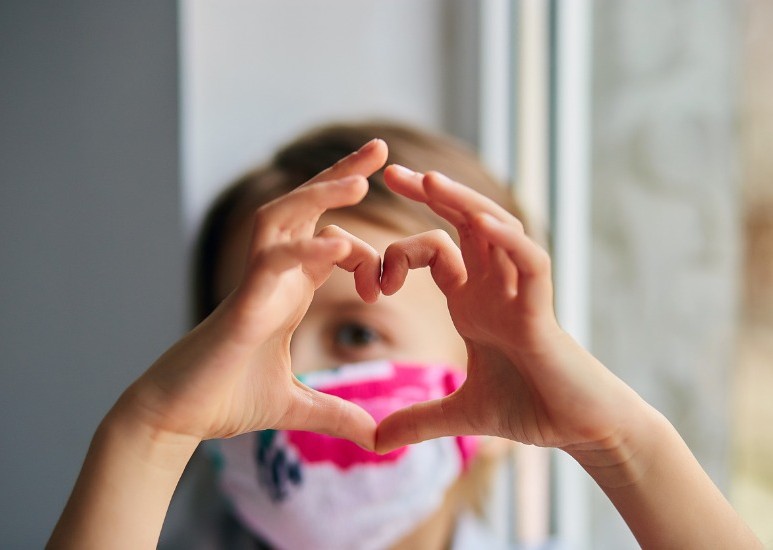Right now, we’re seeing firsthand what happens when an infectious disease is left unchecked. Our way of life has changed dramatically since the beginning of the COVID-19 pandemic, and it will continue to affect our daily lives until a vaccine is developed and deployed.
No matter what this back to school season looks like for your child, getting vaccinated is a vital way to prepare for it. While there’s currently no vaccine for COVID-19, there are a number of other critical vaccines that your kid should get before going back into the classroom. It’s the most effective way for parents to keep their kids from getting seriously ill.
Here are a few things to remember when you schedule your kid’s vaccinations, including the flu vaccine.
Vaccines Work.
The American polio epidemic is a great case study to show just how effective vaccines can be. Polio is a life-threatening disease that can cause permanent paralysis and death. For Americans in the 1940s and early 1950s, it was a very real threat to their everyday life.
In 1952 alone, nearly 60,000 American children contracted polio. Of those 60,000 children, more than 1/4 of them suffered lifelong paralysis because of the disease. 3,000 of them died.
The scientific community raced to prepare a vaccine, and two were successful: one in 1955 and one in 1963. Children across the nation were put on vaccination schedules, and polio cases rapidly fell to fewer than 100 each year.
Since 1979, not a single case of polio has originated in the U.S. Our country was officially declared polio-free in 1994. The moral is clear: polio kills, but vaccines killed polio in the United States.
You Can Always Talk to Your Doctor.
Depending on your kid’s age, they might be due for a number of vaccines. Chicken pox, TDaP, MMR, HPV and the flu shot are all critical vaccinations for kids, and your provider can help you understand why.
“I always encourage my patients to discuss each vaccination with their family physician or pediatrician,” says Dr. Diana Burtea who practices family medicine at Community Physician Network. “That way they can make an informed decision for their child.”
If you’re concerned about the number of vaccinations your kid will get in a short amount of time, ask their provider about a vaccine schedule. There’s a chance that some of the necessary shots can be spaced out a year or two rather than in a single visit.
The Flu Shot Can't Give Your Kid the Flu.
While there’s no cure for the flu, the flu vaccine can help protect your kid from contracting four of the most common influenza viruses each season. To understand how the vaccine works, let’s talk about how the virus works first.
The flu is caused by an active flu virus entering your mouth, nose or eyes. The virus binds to cells and forces those cells to create more flu particles and proteins. That cell then infects other cells around it, and eventually you get sick.
The flu vaccine does contain the flu virus in small amounts, but it’s not active. Your immune system can detect the inactive virus and mount a defense, but the inactive virus can’t infect you. It’s “dead,” so it can’t bind to your cells and give you the flu.
Your Kid Might Feel a Bit Sick After Getting Vaccinated.
After your kid gets their flu shot, they might feel achy or nauseous. This is perfectly normal, and there are a few possible explanations:
- It’s a side effect of the vaccine. When your kid’s immune system becomes aware of the inactive flu virus from the vaccine, it perceives it as an active viral threat. Headaches, nausea and achy muscles are all signs that your body is going to battle against the flu virus — even though the virus in this case isn’t infectious. Thankfully, these side effects are much milder than real flu symptoms, and they should only last a couple days.
- It’s a cold. You can catch a cold at any time, but it’s most prevalent during flu season. A lot of flu symptoms overlap with cold symptoms. Cough, stuffy or runny nose and sore throat don’t necessarily mean your kid has the flu!
- It’s the flu. It can take up to two weeks to build immunity after a flu shot. If your kid is exposed to the flu virus in the meantime, there’s nothing stopping them from coming down with the flu. Getting vaccinated before — not after — the flu moves through your community is the best way to keep your kid healthy.
The flu vaccine and several others are the simplest way to protect your kid’s health this school year and beyond. Ask your doctor about any questions you might have about vaccines, and to get your kid scheduled.
